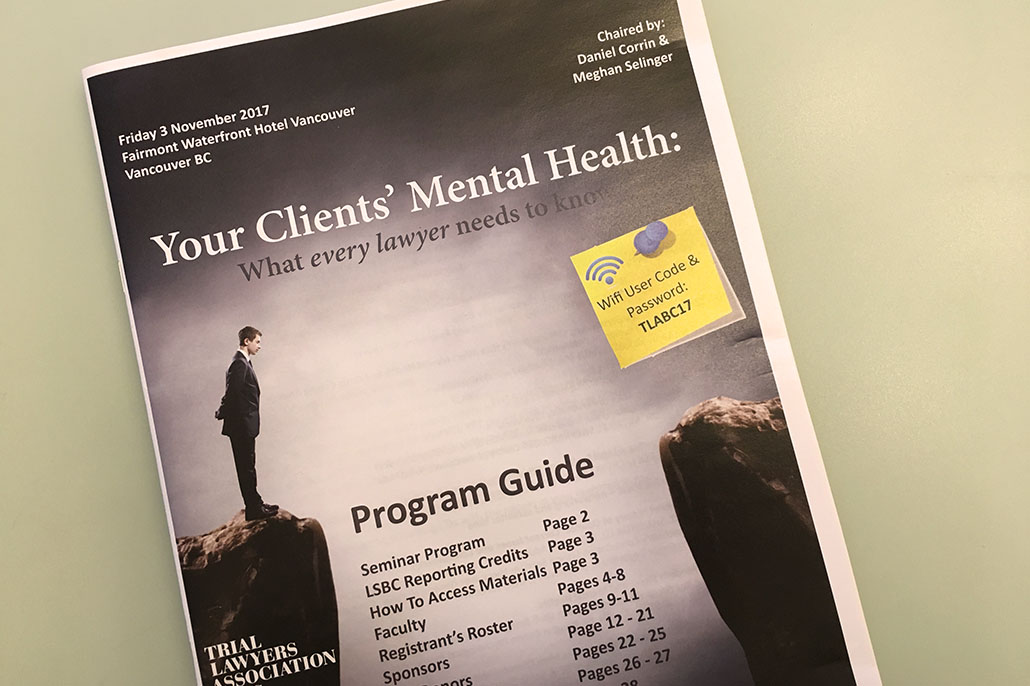On November 3rd, 2017, we appreciated the input by various specialist professionals, as Dan Corrin co-chaired this information-rich session on how to deal with mental illness in litigation; Your Client’s Mental Health: What every lawyer needs to know. The conference, and associated webcast for learning these critical skills, covers key areas such as identifying and dealing with mental illness, in order to best serve clients through the litigation process.
The conference opened with a high-level introduction around the context and reality of Mental Illness. This overview revealed the reality that mental health issues affect as many as 1 in 3 Canadians (within a lifetime), and emphasised the need for increased awareness, as well as Mental Health First Aid, to provide a set of skills for overcoming the stigma associated with Mental Illness. In spite of this reality around the incidence of mental illness, in the ground-breaking case of Mustapha v Culligan as outlined in the presentation: Mental Illness and the Law, made by Faith Hayman, wherein the plaintiff, who developed severe depression and anxiety after discovering a dead fly in a bottle of Culligan Water, did not win his case, owing to the judge’s decision that this could not have been reasonably foreseen. From this, it seems that the law is still forming the points of reference to deal with these cases.
These types of challenges in litigation, of liability for factors which occur within one mind, and how much this can be reasonably attributed to external forces, particularly in cases where the victim experiences things which cannot be objectively verified, create a tension in the space where knowing precisely how to understand the mental wellness of clients becomes an imperative. Specifically, in areas of outcomes involving mental illness without injury, we, as legal professionals, require a deep understanding of the circumstances of our clients, as well as a socio-emotional toolbox to help people we can consider as being at risk.
Following these contextual sessions, the event explored issues around clients presenting with anxiety disorders, and how to identify real suicide risks. The stress of litigating can have severe adverse effects on clients, especially for deeply personal and protracted cases, and understanding the preconditions, or identifying or recognising specific dispositions becomes important in managing such cases, or in identifying post-injury effects.
This fascinating suite of presentations together provided a robust set of tools for legal professionals. This serves to better equip them in understanding and caring for clients, but also in strategic case handling in an area where definitions have yet to find their place in legal precedent, and where already complex legal issues are made more so through the indefinable and uncertain aspects of ‘states of mind’.
In the field of brain injury law, mastering the layers of complexity, and managing litigation through a clear understanding of the client, before, during and after the incident takes a certain commitment. By presenting these key skills and definitions, we aim to open a dialogue around these issues, and to strengthen the professional or systemic response to mental illness, whether this be as a result of injury, stress, or the litigation process itself. And through this, to build this new factual framework for these types of cases, and this professional institution we represent – one so key to the attainment of rights.




